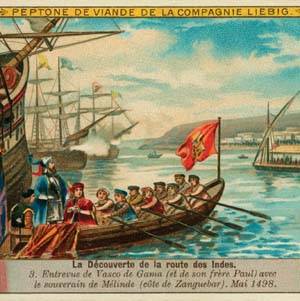“I abducted your girls. I will sell them in the market, by Allah. I will sell them off and marry them off. There is a market for selling humans. Women are slaves. I want to reassure my Muslim brothers that Allah says slaves are permitted in Islam.”
These were the words spoken by a man claiming to be Abubakar Shekau, the leader of Nigerian militant group Boko Haram, in a video. During the rambling address, Shekau justified the kidnap by railing against western eduction (the group's name translates to "western education is banned") and efforts to reconcile Nigeria's Christian and Muslim populations.
It is the first confirmation that the 230 school girls, kidnapped from their school in Nigeria’s northern Borno state, were indeed taken by the Islamist group. The message confirms what has been suspected all along, and backs up what parents and local people have reported: that the girls are being married off or sold as slaves to the members of the group. Boko Haram has been waging a violent insurgency since 2009 (for more background on the organisation, see this post).
At a briefing with journalists on Sunday evening, President Goodluck Jonathan reassured Nigerians that the government was doing everything it could to bring the girls back. Yet for most parents, it was too little too late. This was his first public statement on the abduction, and it was three weeks after the girls were taken.
The government’s perceived inaction has prompted protests in every major city in Nigeria, a significant development, as anger spreads outside the three impoverished states that are worst affected by the insurgency. America and the UK have said they will give counter-terrorism support to the Nigerian government to aid the search.
Outrage at the attack appears to be uniting Nigerians across the board. Sectarian tension between the evenly divided Christian and Muslim populations are commonplace and frequently flare up into violence. Since 2010, more than 3000 have died in sectarian clashes, in incidents that are rarely followed up or prosecuted by the federal government.
The kidnap of hundreds of schoolgirls by the ostensibly Islamic group has the potential to be another toxic flashpoint. This weekend, the Christian Association of Nigeria published a list of 180 Christian girls (about two thirds of the total) among the missing, subtitled "Daughters of Zion taken captive, to be treated as slaves and sold into marriage to unclean people." But rather than causing Christians and Muslims to fight, the list was met with widespread anger and criticism; it appears that - for now, at least - people do not want this to become another sectarian issue. To focus on such divisions would play right into Boko Haram's hands.
As more days pass without any visible steps to find the girls, many Nigerians – in Borno state and beyond – are more concerned with wondering whether their government can protect them than with stirring up old tensions.

